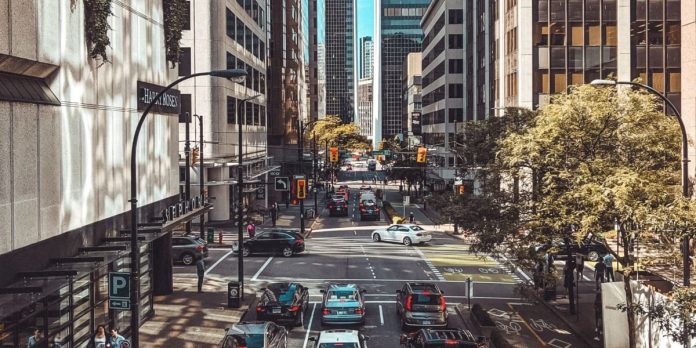Vancouver Board of Trade deserves praise.
Every day across the province, organizations such as the Vancouver Board of Trade are quietly working to improve the social and economic health of our communities.
Their efforts frequently don’t make headlines, but we all benefit from their work. In every town or city, these organizations – the unsung heroes of business – provide a wide range of support and network opportunities.
The Vancouver Board of Trade is one of the largest such organizations in Western Canada, with a current membership of 4,900 representing a wide range of industries. The board has spoken with a strong voice, articulating the needs of its membership to government and policymakers both provincially and federally for more than 100 years.
For many Vancouverites, long-serving managing director Darcy Rezac has been the face of business in Canada’s third-largest city. Having worked with him on many initiatives over the years, I can attest to his tireless efforts to champion the rights of his members.
The board has had many successes, such as its Canada-United States Relations Committee – which works to improve relationships with our American neighbours. The committee has been instrumental in developing a long list of policy initiatives, including the transfer of Vancouver Airport from federal control to the “privatized” model that now operates as the Vancouver International Airport Authority (YVR). The success of the rebranded airport and its best practices has provided a business model that has been replicated and praised as among the best in the world.
Another recent success came this spring when the board of trade demanded that the Vancouver city council reduce escalating tax rates. The message was conveyed by handing each council member a ‘Sustainable City’ stool with the words “economic,” “environment” and “social” written on each of the chair’s three legs.
The board’s message was clear: If Vancouver is to remain a sustainable city, all three focuses must be in balance. The board noted that Vancouver’s property taxes – which are much higher than those in surrounding municipalities – were throwing the “economic” portion of the stool off balance, making it increasingly difficult for city businesses to thrive.
Council evidently heard the message. Dave Parks, assistant managing director and chief economist for the board, said as a result of the presentation, “Mayor Larry Campbell undertook to work with the board and the Fair Tax Coalition toward a long-term solution of the issue.”
The board has several other initiatives underway, Rezac said, which include establishing a task force to examine mounting delays at B.C. border crossings into the U.S. The board was instrumental in working with the U.S. government in bringing the high-tech Nexus Lane program, which provides an express lane for pre-approved frequent travellers, to the Lower Mainland’s border crossings in 2002.
However, the program does not address growing concerns by industry about border delays – traffic bottlenecks that increasingly cost companies both time and money. “(The problem of) increasing border delays is becoming a priority,” Rezac said.
The board is also tackling the issue of crime in Vancouver, said Rezac, noting business has a key role to play in finding solutions. “Crime is everybody’s problem – police, judges, parole officers, social workers. Everyone in the community has to improve British Columbia’s social capital.”
Last year, an umbrella group of community and business organizations are known as the Safe Streets Coalition approached the provincial government with concerns about the growing number of homeless and mentally ill people, along with criminals, residing on Vancouver’s streets. Rezac attributed the street crime problem to the closure of three B.C. prisons in recent years, and a need for tougher sentences.
The coalition, which counts the board of trade among its 64 members, stressed the need to improve the quality of life and public safety in B.C.
In October, the province passed the Safe Streets Act and the Trespass Amendment Act. The coalition is now seeking innovative ways to use the legislation to meet the needs of its members while addressing the needs of the less fortunate.
“Vancouver is seen as the Pacific Centre of Trade – we promote global business opportunities. It is therefore important that we fix it (crime) before the 2010 Olympics,” Rezac said.
It is thanks to efforts by individual businesses and organizations such as the Vancouver Board of Trade that solutions are being found to a range of issues that, ultimately, make B.C. a better place to live and work.
Note: This article was originally published in 2005.



